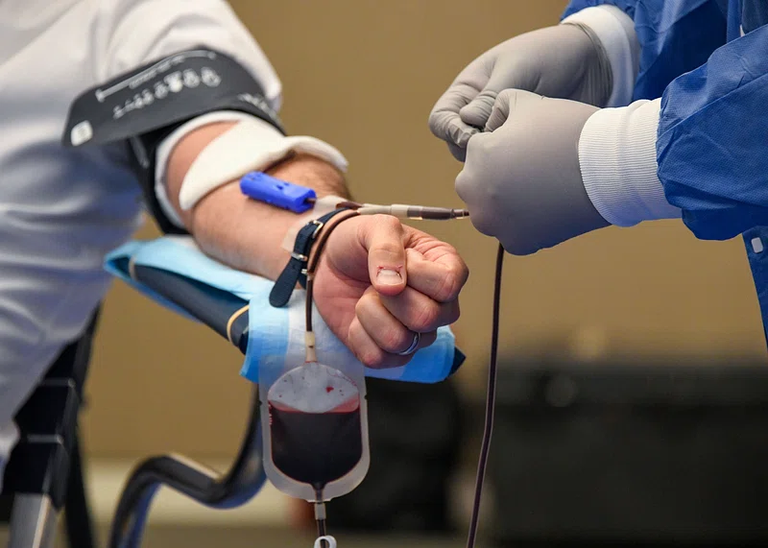The Safety of Blood Donation: A Personal Perspective
Blood donation is a life-saving act that is generally considered safe. However, as with any medical procedure, it carries some risks. This article explores the safety of blood donation through the lens of personal experience and scientific evidence.

Personal Experience with Blood Donation
As someone who has donated blood twice, I have always considered the process safe. The preliminary tests conducted before donation are designed to ensure that the donor is healthy and suitable for donation. These tests typically include checking for diseases that could be transmitted through blood, as well as assessing the donor's overall health.
However, a recent incident has made me reconsider the safety of blood donation.
A Tragic Incident
A kidney patient in need of a transplant finally found a matching donor. However, the surgery required standby blood, prompting a call for voluntary blood donors. Two individuals stepped forward, and after passing the preliminary tests, they donated the required blood.
Unfortunately, one of the donors' health deteriorated rapidly after the donation. He was hospitalized for several days before tragically passing away. The specific health issues he experienced were not disclosed by the doctors, leading to speculation about the cause of his death.
Potential Risks of Blood Donation
While correlation does not necessarily imply causation, it's hard to shake off the thought that the donor's death was related to his blood donation. Some potential health issues that can arise from blood donation include bruising at the needle insertion site, continued bleeding post-donation, dizziness, lightheadedness, nausea, pain, and physical weakness. These are usually considered minor side effects, and I can attest to their mild nature based on my personal experience with blood donation.
However, no evidence suggests that one could die as a result of donating blood. Could it be plausible that the donor had underlying health issues that were missed during the preliminary tests? I guess we will never know.
Vasovagal Reaction: A Possible Explanation
The most plausible cause of the donor's death is a vasovagal reaction. This reaction is characterized by dizziness and lightheadedness that can lead to fainting. It is typically caused by a sudden drop in blood pressure, leading to reduced blood flow to the brain. This can occur during or immediately after the donation process. If not managed promptly and properly, a reduced blood flow to the brain could potentially be fatal.
A study conducted by Lifeblood used a wearable device to identify these reactions early on by measuring skin conductance and heart rate during the donation procedure. This method allows for prompt intervention, minimizing the impact of the reaction on the donor.
Conclusion
While the tragic incident described above is alarming, it's important to remember that adverse reactions to blood donation are rare, and fatal outcomes are even rarer. The benefits of blood donation, both to the donor and the recipient, far outweigh the risks. However, this incident serves as a reminder of the importance of thorough health checks before donation and the need for prompt and proper management of any adverse reactions that may occur. As potential donors, we must be aware of the risks, however small, and make informed decisions about our health. As a community, we must ensure that blood donation remains a safe and life-saving act.
Relevant Resources
(1) Blood donation side effects: What are they and how to treat them.
(2) Donor adverse events | The International Society of Blood Transfusion
(3) The Side Effects Of Blood Donation: What To Do If You - SteadyHealth.
(4) Donor health and wellbeing | Lifeblood.
(5) Australian Blood Donor Study | Lifeblood.
(6) Vasovagal syncope - Symptoms and causes - Mayo Clinic.
(7) Vagal Response Causes and Triggers - Verywell Health.
Thanks for your contribution to the STEMsocial community. Feel free to join us on discord to get to know the rest of us!
Please consider delegating to the @stemsocial account (85% of the curation rewards are returned).
You may also include @stemsocial as a beneficiary of the rewards of this post to get a stronger support.
Very interesting article! I am going to donate blood to the mother of a friend who is going to be operated in a few days, and I can confirm that the procedure is very safe, taking your personal data as the preliminary examination to ensure that the patient is healthy for the donation, I would also recommend to be accompanied, since one is weak after the donation. However, I agree that as an individual responsibility it is necessary to have at least a minimum annual check-up to minimize the risks when participating in donations. But there is no doubt that the benefits of this practice are higher than the cost, especially for the lives that are saved.
I donated blood once and like you said, everything was safe, the whole procedure went by like nothing, but yeah, like you said, those side effects can be lethal if the person has other things that can get worse, and don't know about it or can't be detected in the tests that they take before or after you donate. Everything has a risk, we have to acknowledge that, and sometimes we can't do anything about it.